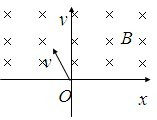问题
简答题
国务院 * * 温 * * 在回答中外记者问时说“我们将把扩大就业作为经济社会发展的一项重要任务,继续采取有力措施。”请运用“劳动就业”的知识回答:
(1)国家为什么把扩大就业作为经济社会发展的一项重要任务?
(2)2010年我国就业形势依然严峻,请你谈谈大学生应该如何正确对待择业和就业问题?
答案
(1)就业是民生之本,解决就业问题已成为事关改革发展稳定大局的重大问题。劳动者的就业问题是影响劳动者家庭生活和事业发展的重要问题;把扩大就业作为经济社会发展的一项重要任务来抓,有助于促进经济发展,提高人民生活水平,促进社会和谐,保障和实现社会稳定.,
(2)既要考虑个人的职业志向,又要考虑社会的需要既要考虑经济待遇,更要有精神的追求既要了解职业岗位的要求,又要考虑自身的主观条件

 ,正电荷
,正电荷 ,正电荷
,正电荷 ,负电荷
,负电荷 ,负电荷
,负电荷